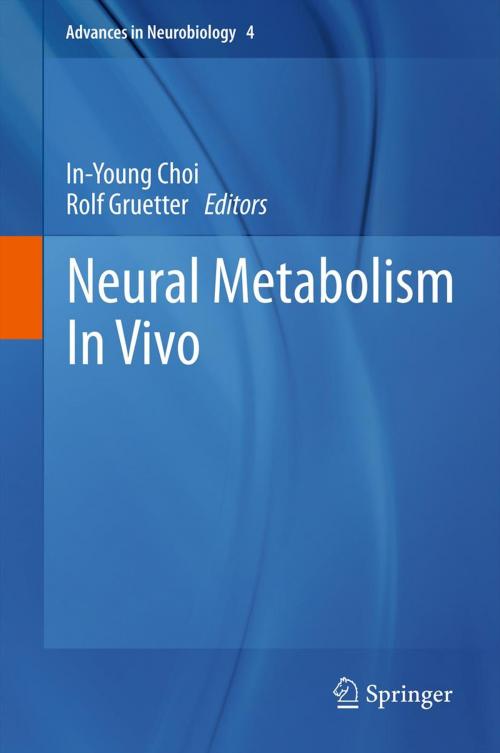Neural Metabolism In Vivo
Nonfiction, Health & Well Being, Medical, Specialties, Internal Medicine, Neuroscience, Science & Nature, Science| Author: | ISBN: | 9781461417880 | |
| Publisher: | Springer US | Publication: | March 8, 2012 |
| Imprint: | Springer | Language: | English |
| Author: | |
| ISBN: | 9781461417880 |
| Publisher: | Springer US |
| Publication: | March 8, 2012 |
| Imprint: | Springer |
| Language: | English |
From the preface:
“Neural Metabolism In Vivo aims to provide a comprehensive overview of neurobiology by presenting the basic principles of up-to-date and cutting-edge technology, as well as their application in assessing the functional, morphological and metabolic aspects of the brain. Investigation of neural activity of the living brain via neurovascular coupling using multimodal imaging techniques extended our understanding of fundamental neurophysiological mechanisms, regulation of cerebral blood flow in connection to neural activity and the interplay between neurons, astrocytes and blood vessels. Constant delivery of glucose and oxygen for energy metabolism is vital for brain function, and the physiological basis of neural activity can be assessed through measurements of cerebral blood flow and consumption of glucose and oxygen….
This book presents the complex physiological and neurochemical processes of neural metabolism and function in response to various physiological conditions and pharmacological stimulations. Neurochemical detection technologies and quantitative aspects of monitoring cerebral energy substrates and other metabolites in the living brain are described under the “Cerebral metabolism of antioxidants, osmolytes and others in vivo” section. Altogether, the advent of new in vivo tools has transformed neuroscience and neurobiology research, and demands interdisciplinary approaches as each technology could only approximate a very small fraction of the true complexity of the underlying biological processes. However, translational values of the emerging in vivo methods to the application of preclinical to clinical studies cannot be emphasized enough. Thus, it is our hope that advances in our understanding of biochemical, molecular, functional and physiological processes of the brain could eventually help people with neurological problems, which are still dominated by the unknowns.”
-- In-Young Choi and Rolf Gruetter
From the preface:
“Neural Metabolism In Vivo aims to provide a comprehensive overview of neurobiology by presenting the basic principles of up-to-date and cutting-edge technology, as well as their application in assessing the functional, morphological and metabolic aspects of the brain. Investigation of neural activity of the living brain via neurovascular coupling using multimodal imaging techniques extended our understanding of fundamental neurophysiological mechanisms, regulation of cerebral blood flow in connection to neural activity and the interplay between neurons, astrocytes and blood vessels. Constant delivery of glucose and oxygen for energy metabolism is vital for brain function, and the physiological basis of neural activity can be assessed through measurements of cerebral blood flow and consumption of glucose and oxygen….
This book presents the complex physiological and neurochemical processes of neural metabolism and function in response to various physiological conditions and pharmacological stimulations. Neurochemical detection technologies and quantitative aspects of monitoring cerebral energy substrates and other metabolites in the living brain are described under the “Cerebral metabolism of antioxidants, osmolytes and others in vivo” section. Altogether, the advent of new in vivo tools has transformed neuroscience and neurobiology research, and demands interdisciplinary approaches as each technology could only approximate a very small fraction of the true complexity of the underlying biological processes. However, translational values of the emerging in vivo methods to the application of preclinical to clinical studies cannot be emphasized enough. Thus, it is our hope that advances in our understanding of biochemical, molecular, functional and physiological processes of the brain could eventually help people with neurological problems, which are still dominated by the unknowns.”
-- In-Young Choi and Rolf Gruetter















